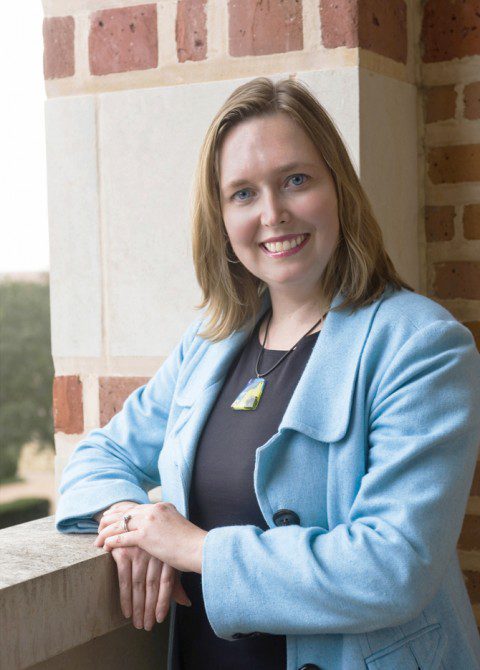Despite their personal non-belief, reports the website Futurity, a surprising number of atheist scientist parents told Ecklund that they often participate in religious traditions for their kids' sake.
"Through in-depth interviews with scientists at elite academic institutions -- those particularly likely to have no firm belief in God," reads the abstract of Ecklund's report, published in the Journal for the Scientific Study of Religion, "we provide insight into the motives scientists who are not religious have for joining a religious group."
The study also examines "the struggle faced by these individuals in reconciling personal beliefs with what they consider the best interests of their families."
Ecklund's co-researcher, Kristen Schultz Lee, is a sociologist at the University at Buffalo. Their study was financed by a grant from the John Templeton Foundation and funding from Rice.
Ecklund and Lee randomly selected participants from a survey of 2,198 tenured and tenure-track faculty in the natural and social sciences at 21 U.S. research universities. About half of those surveyed identified themselves as believers. Of the other half calling themselves atheists, 17 percent of those who have kids still at home said they attended a religious service more than once in the past year.
Why? Respondents cited several reasons, including:
• Scientific identity: Study participants said they wished to expose their children to all sources of knowledge -- including religion -- and allowed them to make their own choices regarding faith
• Spousal influence: Some stay involved in church because of influence from their spouse or partner.
• Desire for community: They said they wanted a sense of "moral community and behavior," even if they don’t agree with the religious reasoning.
Not only do some atheist scientists wish to expose their children to faith, said Ecklund, but they want their kids to choose for themselves.
“We thought that these individuals might be less inclined to introduce their children to religious traditions, but we found the exact opposite to be true," she told the Huffington Post. "They want their children to have choices, and it is more consistent with their science identity to expose their children to all sources of knowledge.
”One participant raised in a strongly Catholic home said he now believes science and religion are not compatible. However, he didn’t "indoctrinate her that she should believe in God. I don’t indoctrinate her into not believing in God.” Instead, he has exposed her to
Christianity, Islam, Buddhism as well other beliefs.
The study’s findings will help the public better understand the role that religious institutions play in society, Ecklund says.
“I think that understanding how non-religious scientists utilize religion in family life demonstrates the important function they have in the U.S.”


